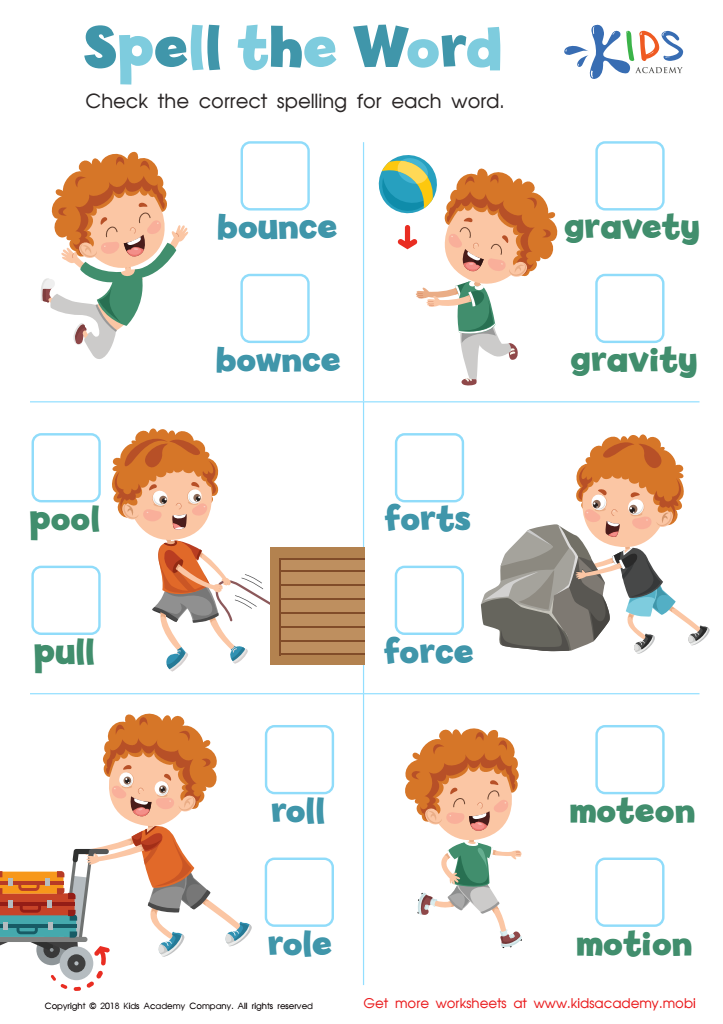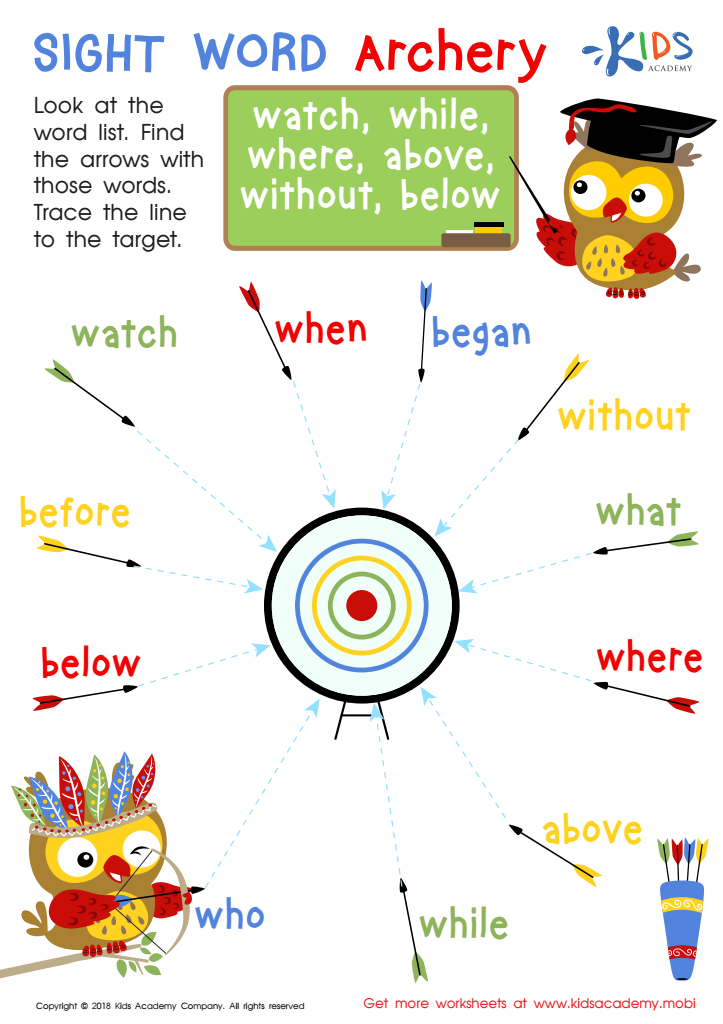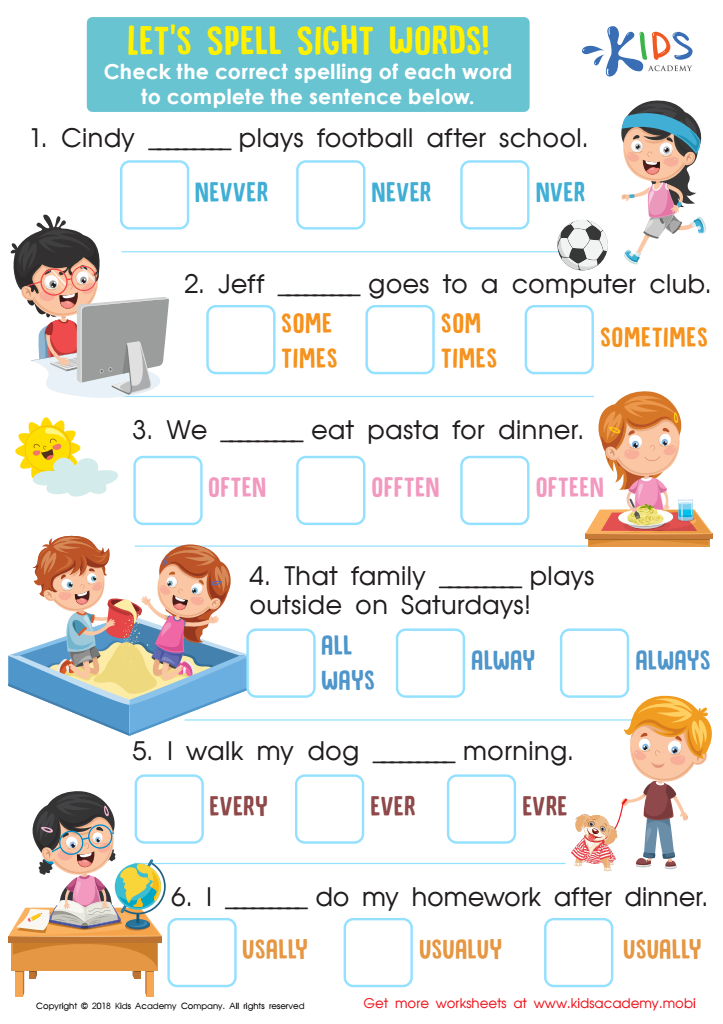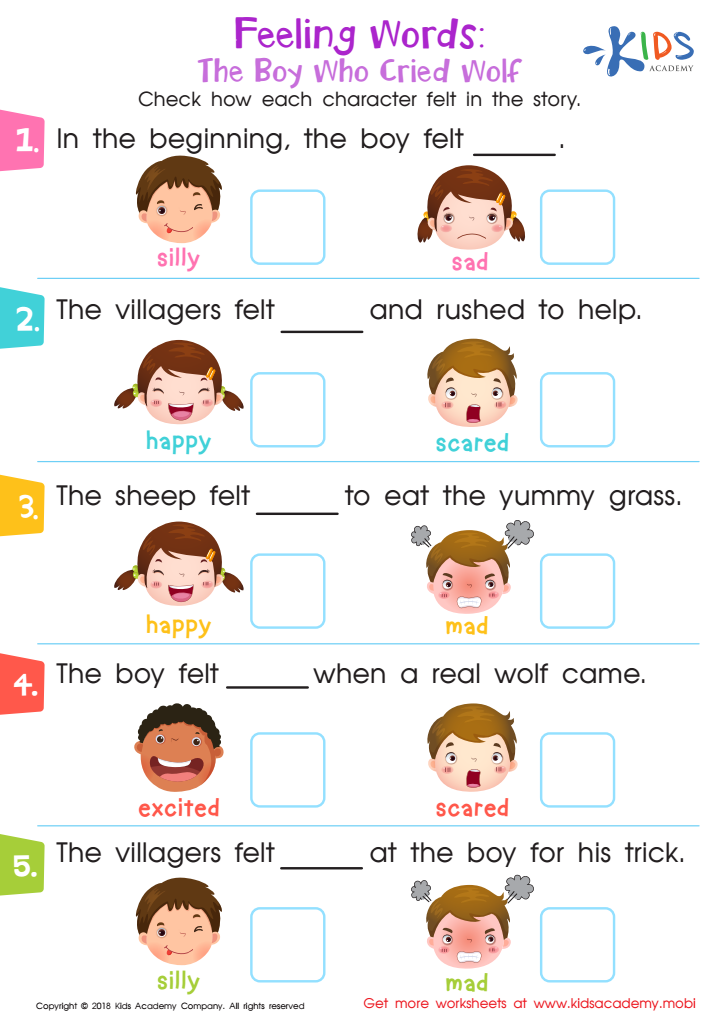Reading skills development Building Vocabulary Worksheets for Ages 4-9
4 filtered results
-
From - To
Explore our engaging "Building Vocabulary Worksheets" designed for children aged 4-9 to enhance reading skills and vocabulary comprehension. Tailored to support early literacy, these worksheets focus on developing crucial language abilities through fun and interactive exercises. Each worksheet features colorful graphics and age-appropriate activities that captivate young learners while fostering a love for reading. Parents and educators will find helpful resources to track progress and reinforce skills, ensuring children grow confident in their vocabulary usage. Unleash your child's potential with our carefully curated worksheets, perfect for at-home learning or classroom settings. Start building stronger reading skills today!


Spell the Word Worksheet


Sight Word Archery Worksheet


Let's Spell Sight Words Worksheet


Feeling Words: The Boy Who Cried Wolf Worksheet
Reading skills development and vocabulary building are crucial for children aged 4 to 9, as they lay the foundation for future academic success and lifelong learning. At this early age, children's brains are highly receptive to language acquisition; hence, enriching their vocabulary strengthens their comprehension abilities and enhances their communication skills.
When children encounter new words, they learn to express their thoughts, emotions, and ideas more effectively. A robust vocabulary allows them to understand classroom instructions better, engage in discussions, and enjoy reading for pleasure, fostering a love for learning. Additionally, strong reading skills promote critical thinking and creativity, essential traits that will benefit them in all areas of studies and life.
Parents and teachers play a pivotal role in this developmental stage. By creating a print-rich environment, engaging children in conversations, and introducing them to diverse reading materials, they can inspire curiosity and encourage exploration. Simple everyday activities, such as reading aloud, discussing new words, and playing word games, can significantly enhance vocabulary and reading skills. Ultimately, investing time and effort in developing these essential skills during the formative years contributes to a child’s overall confidence, academic achievement, and ability to navigate the world around them.
 Assign to My Students
Assign to My Students






























